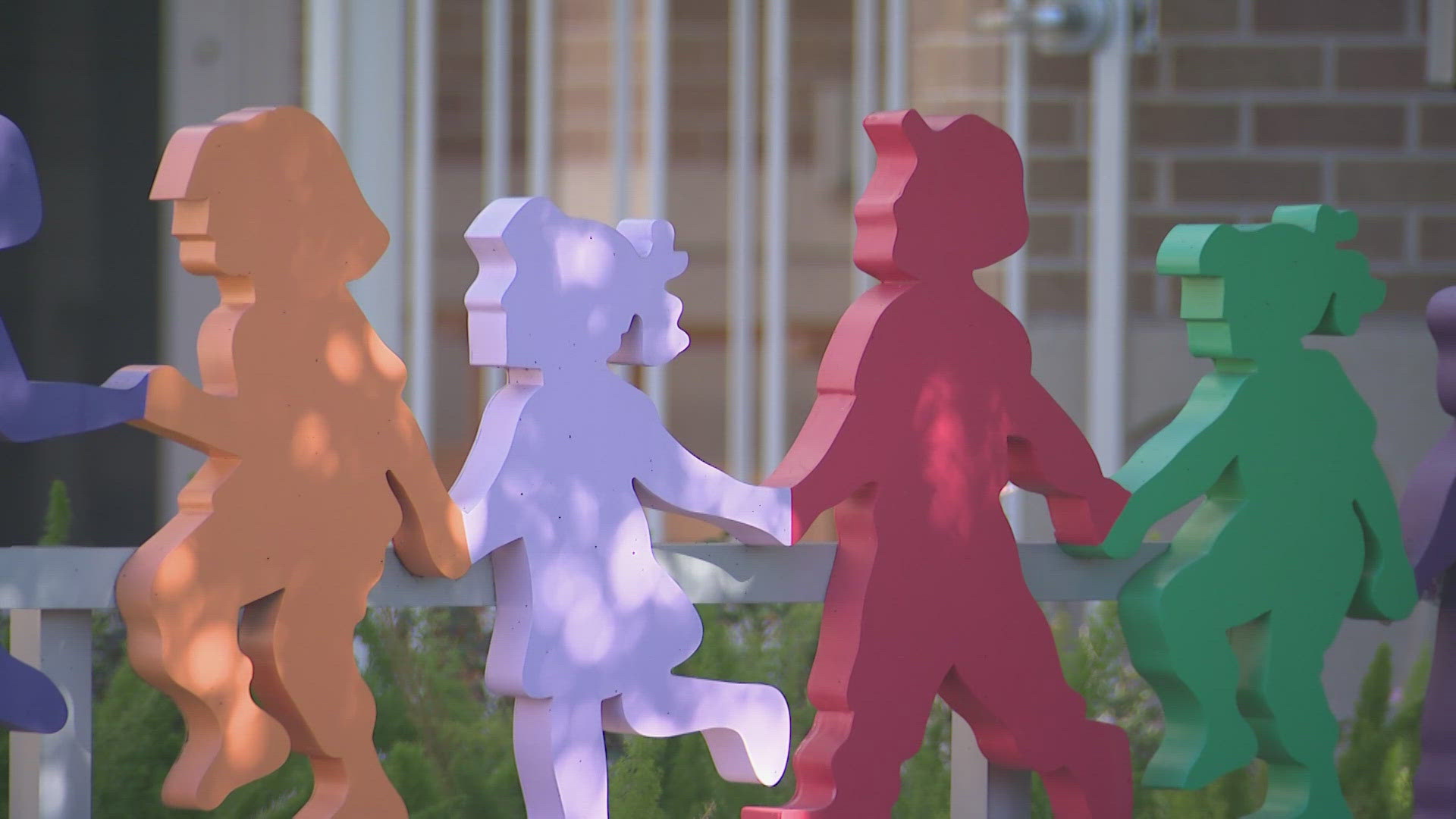HOUSTON — January is National Human Trafficking Awareness Month, and on Thursday local advocates and community leaders rallied to raise awareness, especially about child sex trafficking, hoping to end what they say is an ongoing crisis in the Houston area.
Leading the news conference was Jennifer Hill, Assistant Executive Director at The Children’s Assessment Center, which provides family and victim advocacy services in Harris County.
Hill said Houston is one of the main hubs of trafficking within the U.S.
"It's horrific to know this is something that's happening on our streets of Houston every day," Hill said.
She said a big part of that is due to Houston's direct connection to the border -- and the latest numbers are alarming.
"There are between 244,000 and 400,000 estimated victims of trafficking in the United States each year. Here in Texas, we have the second-most reports of trafficking in our nation," she said.
Hill said it’s a fight that can't be fought alone.
"We need the help of the entire community to recognize the signs and symptoms of sex trafficking, it will take all of us to make a difference," Hill said.
Many of the victims are children in our communities.
"To traffickers, children are an even better commodity to sell than drugs," Hill said.
They're often targeted and preyed upon at schools and the internet.
"Many people don't know that 55% of survivors in the state of Texas were first approached, groomed, lured on their school campuses. It's a very alarming statistic," said Jacquelyn Aluotto, President of No Trafficking Zone.
To better protect children, Aluotto said her organization recently helped pass the "No Trafficking Zone" law, which makes human trafficking in school zones, foster care facilities and other locations a first-degree felony in Texas.
As for signs of child sex trafficking, experts said that while it varies, key signs to look for include sudden changes in behavior.
"Their clothes will change, their nails, their hair. Parents will find a new phone, they'll have different kind of branding, they'll become very isolated," Aluotto said.
The best way for parents to discuss the difficult topic with their kids is through an open conversation.
"Conversations about who their trusted adults are, about who it is they can talk to if something does happen," Hill said.
The CAC will hold workshops throughout the month to raise awareness, for information, click here.

